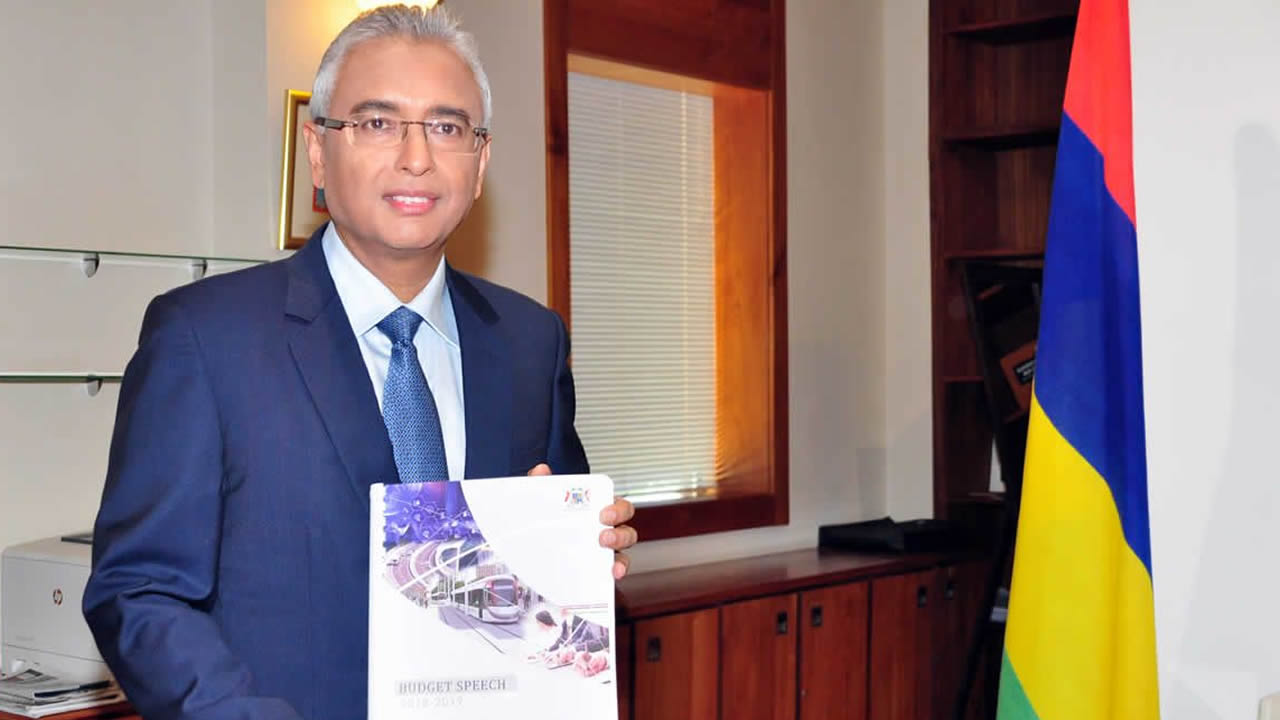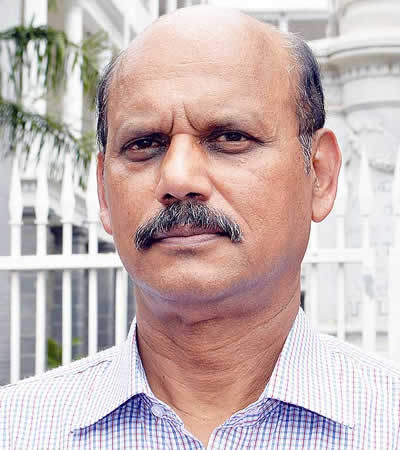
Socio-economic stakeholders had until last week to submit their budget proposals. Business Mauritius and the Mauritius Chamber of Commerce and Industry (MCCI), two leading private sector lobbies, have submitted their memorandums containing a host of economic and social measures. Among their proposals likely to trigger debates, there is the demand for lowering the Corporate Tax to 5% and the selective targeting of old age pension.
The presentation of the next budget is almost round the corner and preparations are well under way. The main spokespersons of the private sector, namely Business Mauritius and the Mauritius Chamber of Commerce and Industry (MCCI) have already submitted their briefs to the Ministry of Finance.
In a voluminous document of more than 90 pages, the MCCI is waging war against tedious bureaucratic procedures, calling for new program of reforms to improve the business climate in several economic sectors. The organisation has even dared to boldly propose the merger of no less than fifteen public departments into a new entity, the Food and Drug Agency, as well as the creation of a Single Licensing Agency, for the granting of all permits and licenses. It further recommends a new industrial strategy to counter the decline of the once glorious manufacturing sector. But the gist of the document is undoubtedly the demand for a lower Corporate Tax from 15% to 5%. The MCCI recalls the history of this tax in Mauritius and explains in detail the rationale behind its proposal. To close that chapter, it wants the Government to exempt the first Rs. 500,000 of profit derived by all companies from taxation.
Moreover, the Chamber of Commerce argues that the Trade Fee levied by municipal and district councils should be abolished as it causes confusion, unnecessary bureaucracy and an added burden to the operators. Another reason put forward is that there is a double licensing levy being charged on companies who are licensed under regulated activities such as financial services, banking, Internet Services, Freeport or Tourism and already pay the necessary licences for conducting such activities. The MCCI is of the view that the operator should pay taxes on profits, and not be penalised by levies just for carrying out its trade activities. In the same vein, the MCCI is calling for the waiving of company incorporation fees as this acts as a detriment to small entrepreneurs wishing to start a business. The MCCI believes that taxes and levies should be paid on profits and that an entrepreneur should have no cost just for starting a business. Company fees should only be payable after a company is active and not as the level of the incorporation of the company.
On its side, Business Mauritius, which represents the interests of more than 1,200 local companies, is calling for the implementation of a National Business Roadmap for a better Mauritius. It focuses its proposals on four key priorities: Improving the management of our scarce natural resources; developing our human capital; strengthening our governance, and addressing our environmental vulnerabilities.
Business Mauritius wants the government to breathe new life into the ‘Ocean Economy’ through sustainable exploitation of our vast exclusive economic zone. It is worth noting that the 'Ocean Economy' is struggling to take off, after the resounding failure of the former 'Land-Based Oceanic Industry'.
Business Mauritius also advocates for a higher proportion of renewable energy, more efficient management of our water resources and greater recycling to reduce the amount of waste sent to landfills, among other things. The pressure group further recommends selective targeting of old age pension. The organisation also wants to be involved in the nomination exercise of board members of certain parastatal bodies whose activities and decisions have a direct impact on entrepreneurship.
The great 2019 challenges
Both organisations are unanimous that this year presents numerous challenges on the social and economic fronts. The global economy has been severely impacted by geopolitical and trade tensions, the uncertainty surrounding Brexit and an accelerated slowdown in the Chinese economy. There has also been the ‘yellow vests protests’ in France and Reunion Island. Our local economy is further affected by weather disruptions resulting from climate change. Our three prominent sectors, namely manufacturing, tourism and financial services are showing signs of weakness. All these factors are likely to threaten our objective to graduate to a high-income, innovation-driven economy in the next 5 years. Business Mauritius further highlights that our macro-economic fundamentals including public debt management, budget deficit, inflation and employment would need to be carefully monitored.
MCCI key proposals
- Review the tax deduction allowance in respect of dependent children studying at university in the wake of free tertiary education
- Tax deduction of Rs 100,000 for investments on the Stock Exchange
- Abolition of the Trade Fee
- Adoption of the ‘Silent is Consent’ principle in cases where public authorities fail to determine an application for a permit within a prescribed delay
- Review the definition of SMEs by pushing the turnover ceiling from Rs 50m to Rs 200m
- Reduce Corporate Tax to 5%
 Frankie Tang : “Low corporate tax may impact on the global sector”
Frankie Tang : “Low corporate tax may impact on the global sector”
Economist Frankie Tang, who is also an investment consultant, says he welcomes the proposal to reduce Corporate Tax to 5%, but he believes it is important to first measure its impact not only on the state’s shortfall of revenues, but also on the offshore sector. “If the State loses revenue, it will have to recover it otherwise. So will another tax rise?” he wonders. Secondly, he opines that offshore companies will lose their attractiveness if domestic companies pay tax at 5%.

Mauritiusfinance.com: Dead and buried?
Launched in the wake of the 2016 Budget, the MauritiusFinance.com platform has since disappeared completely from the web. The objective of this platform was to engage the citizen so that he can propose ideas, comment on economic policies and make constructive criticism. The project was a real success and those behind the concept promised that it would become an all time interactive tool to connect the public with decision makers. However, due to lack of follow-up, the platform withered away and eventually died. According to a source, the project failed because it promoted transparency, freedom to challenge and to criticise policies, while the authorities prefer opacity.
Arts and Culture: Ministry to leave cultural capital?
The MCCI advocates urban regeneration and believes Port Louis should accommodate a Cultural and Art District in the vicinity of the Aapravasi Ghat. It warns against unplanned development and believes Port Louis has a lot more to offer. This view of the MCCI contrasts with the fact that the Ministry vested with the subject of Arts and Culture is planning to move out of Port Louis and settle in Ebène! Artists and people passionate about culture feel a Ministry of Arts and Culture should remain in Port Louis.
Duty Free Island : A comeback?
The coming budget is said to unveil lots of surprises. Will we see a comeback of the ‘Mauritius Duty Free Island’ project? This project of 2004/2005 has since remained on the starting blocks, though there has been a gradual decline or removal of tariffs on many products during the last decade. Currently, there is a school of thought that a duty-free island might save our tourism industry. Will it be on the budget cards?
Political financing
Business Mauritius is appealing to the Government to properly regulate the financing of political parties. It is pushing for new legislation to ensure transparency and accountability of the political donation process. In particular, it recommends that (i) political parties have a legal locus standi prior to the registration by the Electoral Supervisory Commission, (ii) in-kind donations by private companies be regulated, (iii) private company donations to be capped to a small percentage (say 5%) of a party’s total campaign budget and (iv) sanctioning powers of the ESC to be broadened and its report at year-end be made public, highlighting non-compliance cases and the relevant sanctions.
 Dan Maraye : “A uniform rate of 5% for all is best”
Dan Maraye : “A uniform rate of 5% for all is best”
Asked to comment on a possible reduction of Corporate Tax to 5%, Dan Maraye, chartered accountant and former governor of the Bank of Mauritius, explains that this will certainly impact on government revenues, but it depends on the weight of this item in overall public revenues. However, the advantage is that it will leave more money in the hands of companies. Thus, entrepreneurs can reinvest this tax savings in business expansion to create more jobs or pay employees better. He believes it will be a good step forward if the government lowers Corporate Tax. However, regarding the global business sector, he opines that it will make more sense, if ever the 5% proposal is retained, to also extend it to offshore companies. “Currently, the offshore sector is subject to a rate of 3%. A uniform rate will be beneficial to all companies, irrespective of their status. Mauritius will thus be able to boast of treating all companies on an equal footing, and international bodies such as the OECD will no longer point a finger at us,” concludes Dan Maraye.

 Radhakrishna Sadien : “Let’s start with voluntary refusal of state pensions”
Radhakrishna Sadien : “Let’s start with voluntary refusal of state pensions”
Radhakrishna Sadien, chairman of the Government Services Employees Association, vehemently opposes the proposal of Business Mauritius to resort to selective targeting for old age pensions. The Trade Unionist argues that the country lacks a uniform and objective yardstick to measure the degree of merit for a State pension. “If we go towards selective targeting, on what basis would we select? I believe it is impossible to carry out any objective selection in Mauritius as of date,” says Radhakrishna Sadien, who feels Business Mauritius is wrong for trying to push this proposal. “I think we can start this idea on a purely voluntary basis. Nothing stops wealthy citizens from refusing state pension or donating it to a needy family. Business Mauritius members can lead by example,” says the president of the GSEA. He adds that the majority of workers in Mauritius are caught in the middle income trap and they will have to rely solely on their pension upon retirement. Commenting on the proposal to lower Corporate Tax, Radhakrishna Sadien says on the contrary, this tax must instead be raised as companies are making too much profit on the back of consumers. “I am for a graduated tax system where SMEs pay a lower rate and large companies making huge profits pay a higher rate.” Morever, he proposes that income tax rate for employees be further reduced to alleviate workers from the burden of rising cost of living. Finally, on the issue of political financing, Radhakrishna Sadien warns the Government not to use public funds to finance private political parties. “We don’t pay taxes to finance politicians. It’s up to politicians to review their campaigning methods to reduce their costs, and finance their activities from their own pockets.” He concludes that the current campaigning methods encourage bribery and corruption, and we cannot condone this anymore.
 J'aime
J'aime














